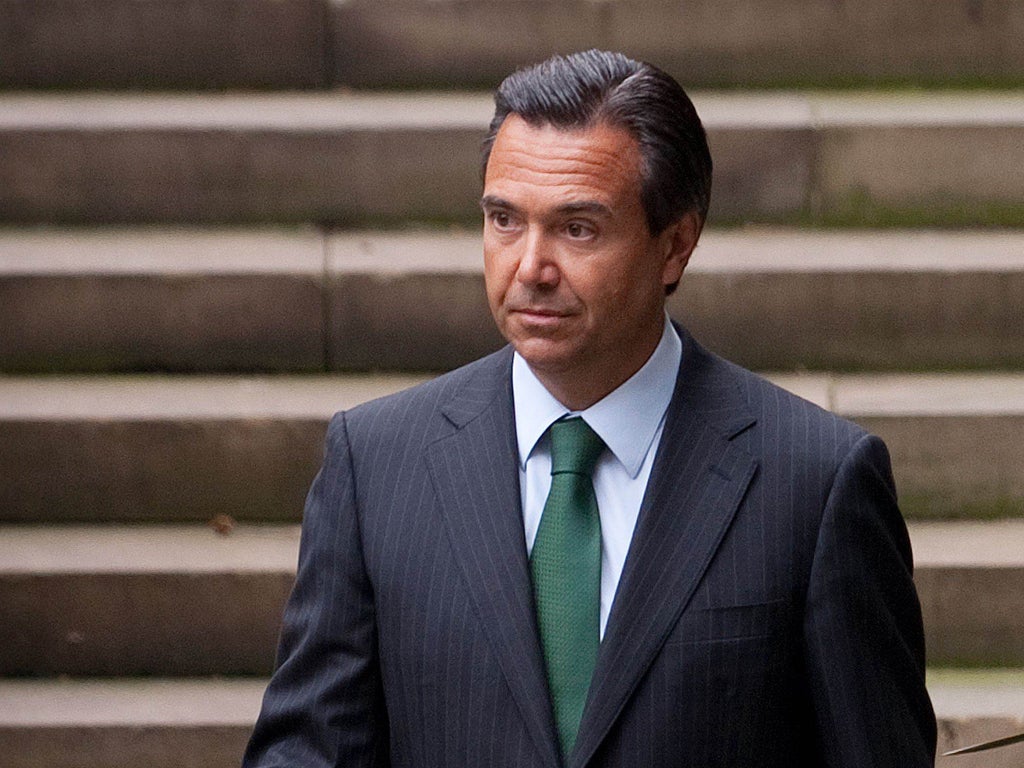Shareholders must put a stop to fat-cat pay, says Clegg
As bonus season kicks off, Deputy PM says he will give investors power to call executives to account

Executives will have to be clearer to shareholders how much they are paying themselves under plans to tackle eye-watering levels of executive pay. Nick Clegg, the Deputy Prime Minister, will promise tomorrow to "force companies to open up their books" so that investors "don't need an accountancy degree to decipher them".
Financial reports will have to spell out how money is divided up between shareholders, employees, executives and reinvestment in a move that ministers hope will persuade investors to curb eye-watering payouts to directors.
The Liberal Democrat leader will urge investors to use the opportunity to "throw their weight around so that the company improves". His intervention in the fat cats debate comes after David Cameron and Ed Miliband each sought to portray themselves as the only politician capable of tackling rewards for failure.
On the eve of the finance sector's bonus season, all parties are keen to avoid becoming the target of public anger at multimillion-pound payouts at a time when many people are struggling with job insecurity and rising living costs.
A week ago Mr Miliband argued: "If one of the big battlegrounds of British politics is going to be who is really going to take action on executive pay, I say, 'Bring it on'. I promise you they are not going to steal a march on us in this area."
But Mr Clegg will accuse Labour of ignoring Lib Dem warnings that bank lending levels were "recklessly irresponsible" at a time when "bad debts were growing". "There is a big difference between having strong views on bonus culture or excessive top pay and wanting real change in the practices and principles that guide corporate life," he will say in a speech tomorrow, hosted by the City of London and the CentreForum think tank.
"A bit of wrist slapping or moralising at the worst offenders will not be enough. This should not be a war of words, but a real contest of ideas about how to reform our economy," he will caution.
Mr Clegg will challenge more investors to behave like responsible business owners rather than "absentee landlords" and will confirm plans to introduce binding shareholder votes to curb executive pay. In support he will pledge to give shareholders more information to take an active interest in how firms are run.
Companies will have to produce a "report card" on how well investors' money has been spent, and on what. A policy will have to be set on so-called "golden parachute" payouts for departing chief executives, which could make it harder for large sums to be paid to under-performing bosses.
The pledge comes as Goldman Sachs set aside 44 per cent of almost £15bn generated in the first nine months of 2011 for staff pay, compared to the 39.3 per cent ratio in 2010, despite having what could be its worst-performing year for more than a decade.
An IoS survey of 200 City fund managers today reveals more than half of investors are "set to become more interventionist" on salaries for top executive pay.
It emerged last week that Antonio Horta-Osorio, the boss of the taxpayer-backed Lloyds Banking Group, would not take his £2.4m annual bonus for 2011 to reflect the "impact" his two-month leave of absence for severe sleep problems had had on the bank.
He is not the first to say no to a payout. At Barclays, Bob Diamond turned down bonuses worth more than £4m in 2008 and 2009, while John Varley declined more than £2.9m. Eric Daniels at Lloyds forwent a £2.3m payout in 2009, and Stephen Hester did not take £1.6m in 2008 and 2009 at RBS.
Mr Clegg will acknowledge that some companies have improved their levels of transparency, but will argue too many firms hide behind "impenetrable texts, obscuring rather than illuminating".
Subscribe to Independent Premium to bookmark this article
Want to bookmark your favourite articles and stories to read or reference later? Start your Independent Premium subscription today.

Join our commenting forum
Join thought-provoking conversations, follow other Independent readers and see their replies